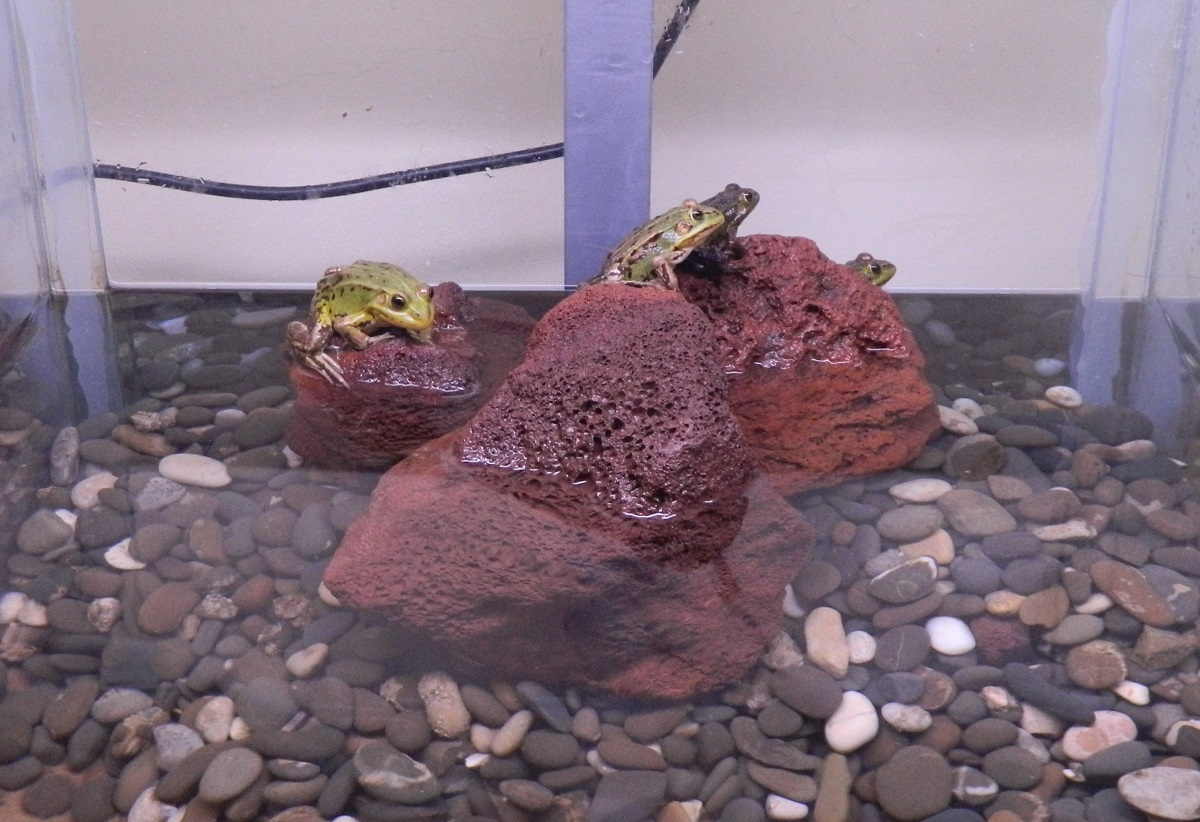Edible frogs help SPbU delve into how new species appear

The SPbU’s scientists headed by SPbU’s Associate Professor Alla Krasikova have discovered a unique evolutionary phenomenon: the edible frogs, an interspecies hybrid of the water frogs of Pelophylax esculentus complex, can reproduce without parent species.
Published in the BMC Evolutionary Biology, the research offers a deep insight into how new species appear.
Most interspecies hybrids die or cannot reproduce themselves These hybrids are produced in captivity and are unlikely to occur in the wild: for example, zebroid, the offspring of any cross between a zebra and any other equine, or leopon, a hybrid resulting from the crossing of a male leopard with a lioness. normally sterile interspecific hybrids cannot produce viable gametes, because differences in chromosome structure prevent appropriate pairing and segregation during meiosis, meiosis is disrupted, and viable sperm and eggs are not formed.
For the last two years, the SPbU’s young scientists, with support of the RFBR’s grant, have been studied the edible frogs that are universally regarded as a traditional French delicacy. The hybrid resulting from the crossing of the Pelophylax ridibundus with the Pelophylax lessonae (water frogs of Pelophylax esculentus complex), as the scientists say, is successful in reproduction in the wild and do not follow the common genetic regularities.
“As a rule, the animal hybrids, including the edible frogs, reproduce via crossing with the parental species. The hybridization event involves deleting the chromosome set of one parent species and doubling of the chromosome set of the second parent, causing immediate genetic isolation”, –said the first author of the article SPBU’s junior research fellow Dmitrii Dedukh. This reproduction process was discovered in the edible frogs when studying the deletion or doubling the chromosome sets in the female germ cells.
However, the recently-published research shows that the hybrids of the edible frogs can reproduce via crossing without parent species. In other words, they can produce viable gametes, which is unlikely for the animal hybrids.
In the SPbU’s Research Park, we performed artificial crossing experiments of water frogs of Pelophylax esculentus complex. For the first time in science, we have identified tadpole karyotypes and oocyte genome composition in all females involved in the crossings.
SPbU’s Associate Professor Alla Krasikova
“The diploid hybrid frogs can reproduce triploid hybrids via crossing. Interestingly, the triploid hybrid frogs reproduce the diploid hybrid frogs after crossing and partially substitute the parental species. It can lead to the appearance of a new frog species”, – said the head of the project, SPbU’s Associate Professor Alla Krasikova.
The research delves into the evolution processes and the mechanisms how new species appear. Moreover, it gained an insight into speciation process of the amphibians, and the amphibian population is under the threat of extinction globally.

